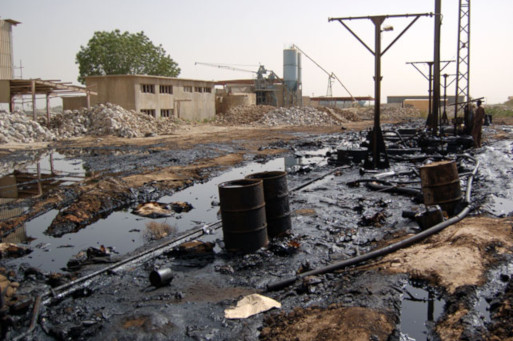It is imperative for any new oil producing Country to have a solid framework to prevent oil pollution. Unchecked, the Oil & Gas industry can create devastating environmental disasters; remedial work is enourmously costly and highly specialized leaving prevention as the only viable solution specially for operations in developing countries.
Lerning from past disasters
The oil and gas industry's history is unfortunately full of environmental disasters caused by the lack of preventing framework or their neglect
From the 1967 blowout in the California's Santa Barbara Channel that spilled over 4 million barrel of crude for 12 days; to the Exxon Valdez on March 24, 1989 that polluted over 2000 km of pristine Alaskan coastline, to the BP Deepwater Horizon that spilled million of tons of oil into the Gulf of Mexico in 2010, the wounds to the enviroment are deep and need many decades to heal.
But we don't need to look far to see scars and open wounds in the environment caused by uncontrolled O&G activity: the Niger Delta region of Nigeria has been devasted by uncontrolled spillages and fires caused by poachers looking to steal oil from the pipelines that carry crude. One of such exploding fires in 2015 caused the death of 14 workes attempting to repair and contain an oil spill.
An even closer example is the pollution created by the oil producers in South Sudan. In the case of South Sudan however, the cause of pollution is not an unpredictable incident or an act of vandalism.
The situation in South Sudan is one of chemicals-contaminated containers left unattended in the open leading to the communities using them to store water and granaries. Drilling waters containing heavy metals and other contaminants that's allowed to runoff polluting the surface acquifers in areas of such water scarcity. Is a situation of oil spillages left uncontrolled for years contaminating the soils for kilometers.
South Sudan has a potential oil production of over half a million barrels of crude per day. At the time we revised this insight, crude oil averages well over $100 a barrel, thus South Sudan is posed to earn in excess of 50 million USD per day from the production of crude oil. Despites this enormous amount of income, the pollution generated by the producers and its implications to the country's population, such as birth defects, water pollution, soil contamination, are swiped under the rug.
The good news
The Ministry of Petroleum of South Sudan has invited reputable international companies to express interest in assessing the pollution situation in each production field and we are proud to say that Eco Choice has expressed interest and has been shortlisted for the proceeding process although, by the time we write this insight, no initiative has been awarded.
The O&G industry itself has reacted to those disasters and adopted more stringent self-reguating rules and guidelines. Notably, in the wake of BP oil spill into the Gulf of Mexico in 200, the American Petroleum Institute and other major international associations of the Oil & Gas industry, have produced a comprehensive toolkit to prevent and mitigate damages to the environment, the work of which is available for anyone to adopt and implement.
Responsible Countries have also developed more generic frameworks that ensure environment-friendly activities. In the opinion of the writer, the best example of environmental protection framework is without a doubt the Alberta Environment Protection Act
In conclusion
Countries aspiring to explore and develop their oil resources have an obligation towards the environment and their citizens for the protection of lifes and livelyhood that goes beyond incrementing the Country's GOP.
It is easy to understand that the underlying cause of the pollution in South Sudan is three-fold:
- Disregard of the industry's best practices by the O&G players;
- Lack of a sustainable preventing framework; and
- Inability to enforce controls and accountability due to collusion and corruption.
The only sustainable aproach to environmental, lifes and livelyhood protection is to adopt and implement a sound framework and not to fall complacent about the risks associated with the research and extraction of hydrocarbons.
